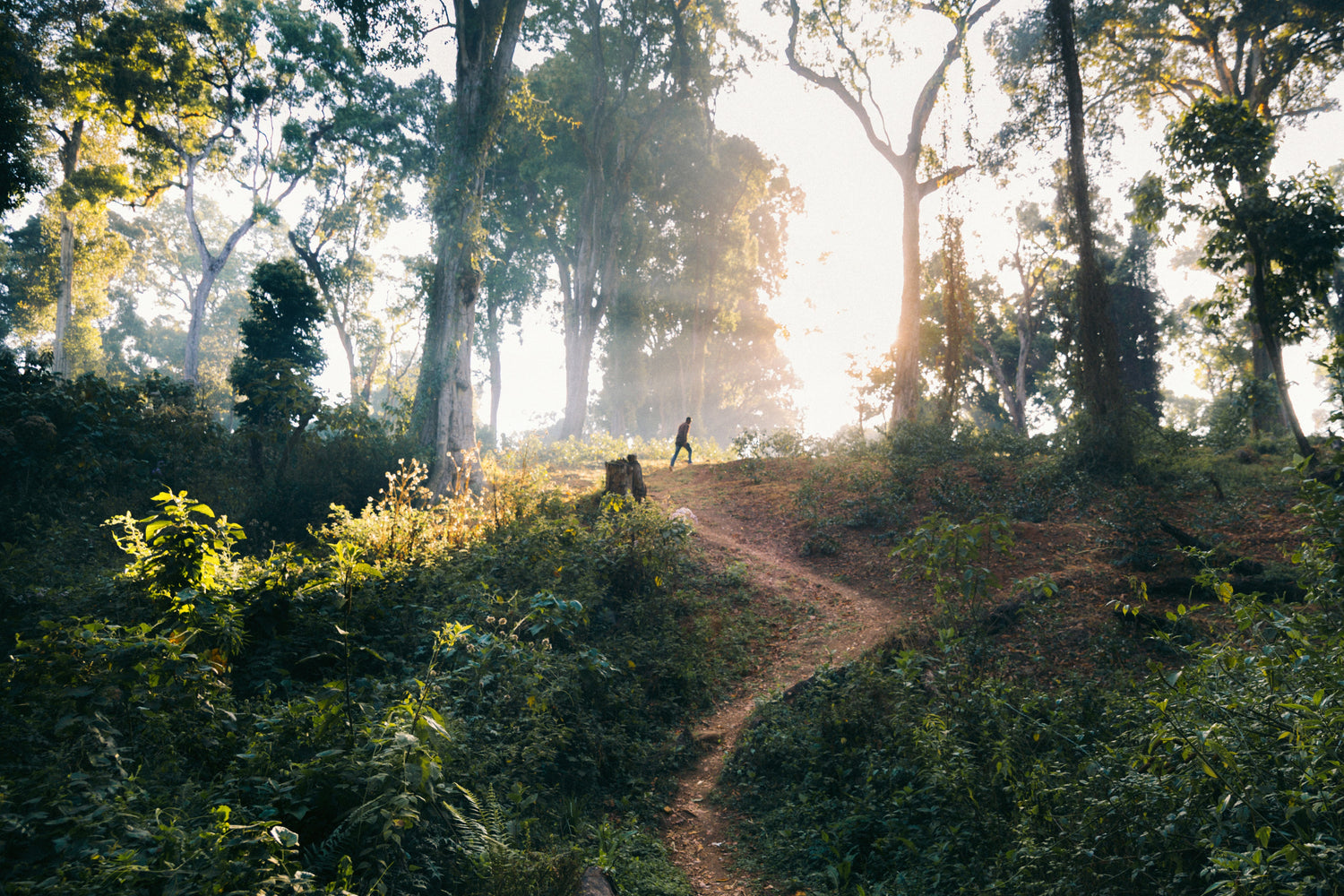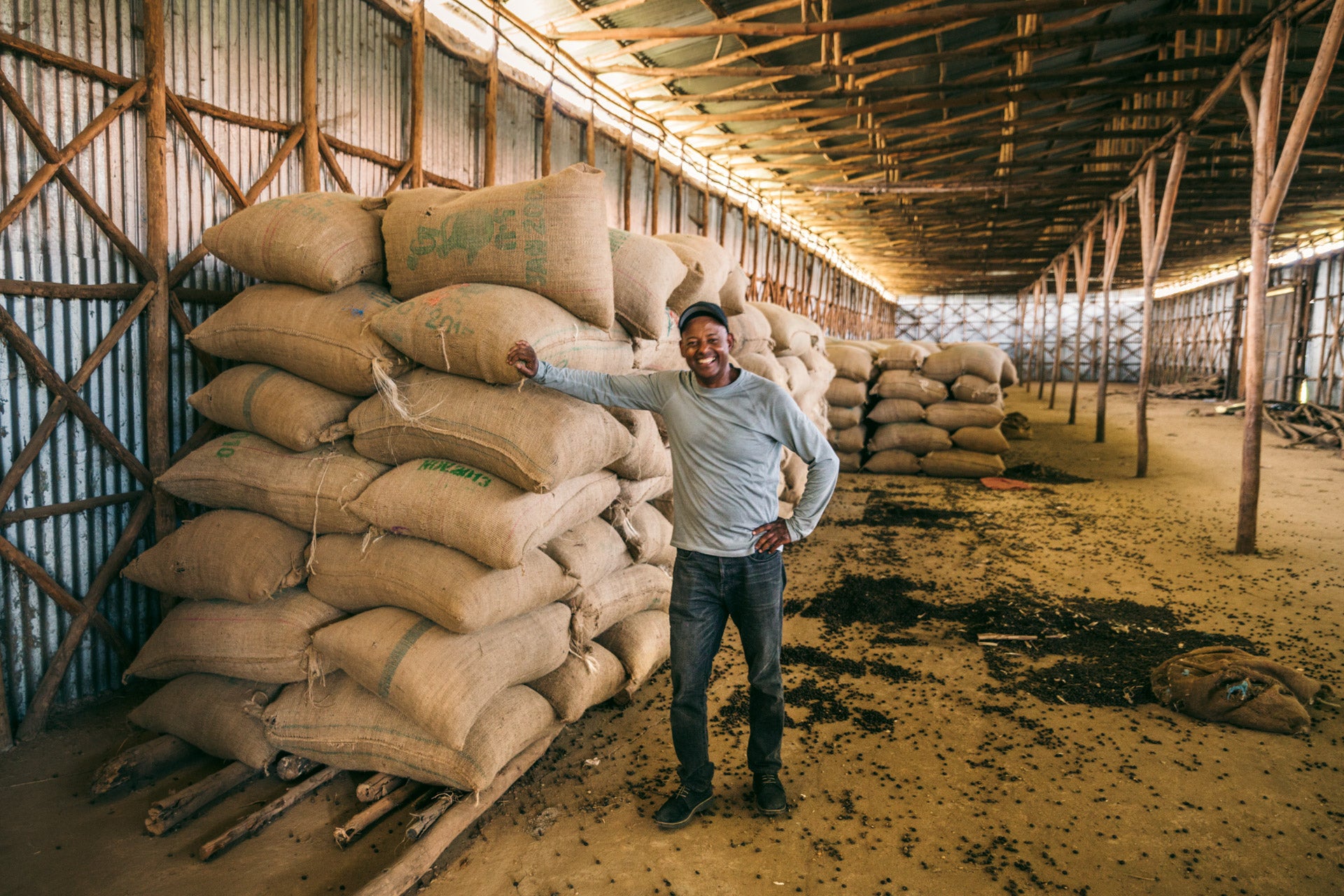Filmmaker Alexander Kinnunen on the Making of "Shade Grown Coffee"

Join us at our headquarters at 2 PM on Saturday, August 27, 2022 as we throw a watch party for the documentary film "Shade Grown Coffee." Tickets are a suggested donation of $5 with 100% of proceeds going to our August charity, Calgary Pride.
“Shade Grown Coffee” is the inspiring story about how growing coffee in the shade of native trees in the tropics can have a truly positive impact on local communities, halt deforestation, and protect critical habitat for wildlife–all while giving your daily dose of caffeine a better aftertaste. Read on for an interview with the filmmaker and director, Alexander Kinnunen.
Q: Why make a film about shade grown coffee?
AK: As a filmmaker, I’m always looking for a good story to tell. Yet shade grown coffee is more than just a good story. It’s also a way to make an important environmental and economic impact.
Once I learned that it’s possible to grow coffee in the shade - in conjunction with nature - instead of conventionally with agrochemicals (and few to no trees!), I knew it was an urgent story to tell.
Q: What is shade grown coffee and what are its benefits?
AK: Shade grown coffee is coffee grown under the shade of other trees. This can range from the farmer planting shade trees on their farm to them planting coffee trees in existing forests – just like how wild coffee grows.
The shade trees provide a host of advantages, ranging from the environmental to the economic. They offer the coffee plants much-needed shade from the scorching sun.
This helps keep the temperature low and stable, while the trees’ fallen leaves keep the humidity in the ground. The shade trees can also decrease soil erosion from downpours.
Many popular shade trees fix nitrogen in the soil. If a coffee farm doesn’t have these nitrogen-fixing trees, farmers will need to add it - often chemically.
When coffee is grown under shade, it generally ripens slower, giving the cherries more time to mature and fully develop their complex flavours.
Another benefit is economic. If the coffee farmer plants fruit-growing shade trees, they can maximize their income and diversify their diet – all while using almost no extra land. Papayas, mangos, bananas, oranges, and avocados can all grow well on many coffee farms.
Q: Where was “Shade Grown Coffee” filmed and how long has it taken to make?
AK: We started filming “Shade Grown Coffee” in October 2015 and have visited Mexico, Guatemala, El Salvador, Nicaragua, Panama, Jamaica, and Ethiopia to interview passionate farmers working with sustainable coffee production.
We have also filmed at roasteries and cafés in the US, Europe, and Asia to capture the whole process from seed to cup.
Editing all the footage into a cohesive story took the better part of a year, and production wrapped around the summer of 2019.
Q: Being just two people mainly working on “Shade Grown Coffee” and self-financing it, how did you manage to make and finish a full-length documentary film?
AK: It hasn’t been easy and it hasn’t been fast. The idea we had for the film back when we started filming in Mexico was way different from what the story turned out to be, and though it has taken countless iterations to get to the heart of it, the only way has really been to keep editing until it felt right.
On a practical level, it has, of course, been a challenge to sustain an income on the side of a project of this scale. But at the same time, working independently has also given us complete creative freedom. Being able to revisit the project over a long timeframe has also given us a fresh perspective and a clearer lens to see through.
It has never been a question of whether or not we would finish the film, but rather a question of when. And we knew early on that the answer could only be found by spending long days (and nights) working on the film relentlessly, so that’s what we did.
Q: What has had the most profound impact on you personally over the course of filming “Shade Grown Coffee”?
AK: Meeting the people who work passionately with coffee on a day-to-day basis has been a truly meaningful experience. The film has opened doors I didn’t know existed and it has enriched me with many life-long friends.
I grew up in Copenhagen far-removed from most of the products I consumed, so seeing up close the tremendous work that goes into something as seemingly simple as a cup of coffee has been eye-opening - to say the least!
In a broader perspective, I have been touched deeply by witnessing how producing a commodity can go hand in hand with nature instead of acting against it. Several of the places we visited looks more like beautiful nature reserves than farms, which is exactly how it should be.
Q: How does "Shade Grown Coffee" differ from other related documentaries?
AK: While I think it’s wonderful to see how many socially conscious documentaries are being put out, many of them have a tendency to make me feel frustrated and powerless with governments, big corporations, and other things outside my circle of influence.
My own consumer habits, on the other hand, sit inside that circle.
It’s so easy to blame the bad guys and for a while, we contemplated including more footage from conventional coffee farms showing the ramifications of producing coffee in that very intensive way.
Instead, I think that creating a positive experience enabling the consumer to make better choices is a healthier route to take.
It’s also relevant to note that no coffee farmer actively wants to destroy habitat and endanger their workers. They’re just a part of a system where it’s often a race to the bottom instead of the top. And while that trend is slowly reversing, it needs to happen faster.
Q: What do you hope to achieve with this film?
AK: I want to empower the viewer and make them feel like they can make an important difference with their habits and purchases.
Buying coffee produced with special attention to both nature, animals, and workers can really have a lasting influence on our global environment and it’s crucial to realise that it doesn’t have to be difficult nor expensive.
Another goal of the film is that the audience will get a deeper understanding of how much work actually goes into producing quality coffee. Hopefully, they will appreciate their next cup of coffee even more.
If we’re lucky, they’ll also walk away with an increased appetite for learning more about where the other products they’re consuming daily come from and the stories behind them.
This is key to a sustainable future for everyone, I think.
Q: What has it meant for you and Victoria’s relationship to work on a project of this scale together?
AK: There will inevitably be ups and downs in every film project, but in the end, we have both grown tremendously from the experience. Travelling and working together as closely as we have won’t be for everyone, but sharing a passion with your partner is something that has the capacity to deepen your relationship and give you something to laugh - and cry - about together. It’s been an incredible journey. Right now, we’re just incredibly proud to have finished this project and to share “Shade Grown Coffee” with the world.
About "Shade Grown Coffee"
Alexander Kinnunen, director
Alexander is a filmmaker and the movie’s main creative decision-maker, cinematographer, sound technician, and editor. He has previously been the cinematographer on “Isabelle mon amour” (2018) and made short documentaries, short films, commercials, and music videos for about a decade.
“'Shade Grown Coffee' is my first feature-length film as a director, and I am very excited over the prospect of spreading awareness about sustainable coffee through beautiful visuals. While that’s an intriguing story by itself, the real story is that everything we do as humans has far-ranging consequences for other people and for nature. We’re all connected. It’s all connected. And once you see the beauty in that, real change is possible.”
Victoria Handskemager Wagner, producer
Victoria is the film’s producer. With a background in project management, her main job has been connecting and communicating as well as handling the film’s social media platforms. She has also actively played the role as an assisting camera (wo)man and editor and made sure Alexander stayed on track.
“Utilising shade properly has the potential to make coffee truly sustainable – both for nature and for the farmer. Yet many consumers don’t know about it. We have a choice when we purchase coffee. And as production closely follows demand, this choice can have a great effect on farming methods worldwide. If we can not only tell a great story, but also encourage consumers to ask how their coffee is grown, and prompt them to base their purchases on that, then this movie can make a difference in the world.”





